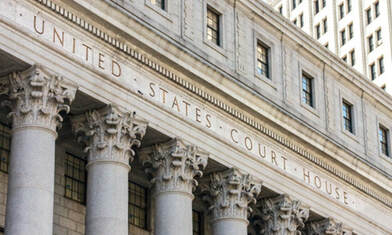 Southern District of New York Court
Southern District of New York Court At his confirmation hearing, Barr said he would make as much of the contents of Mueller’s report public as Department of Justice and other regulations permit. Barr seemed to be referring to testimony developed in the grand jury, classified information, and any information about individuals that may be negative but not criminally chargeable. Barr, however, did not express any willingness to have a judge release grand jury testimony, have the relevant government agency de-classify information, or consider the public interest in knowing about our President, even if Barr will not indict him.
Under these procedures, and despite the efforts of House Democrats to subpoena Mueller’s report, it is entirely possible that we will never know what is in Mueller’s report. Former Acting Solicitor General Neal Katyal, who drafted the Special Counsel Law, argues that unless Mueller’s investigation absolves Trump, the House would be constitutionally obligated to follow up on impeachable issues he identified. And Mueller is unlikely to entirely absolve Trump because he and his surrogates have demeaned Mueller and his staff, their work product will be degraded.
In any event, the Mueller report is unlikely to end the Russian inquiry. Because the preservation of the Russia investigations of the evidence related to them was a primary consideration when they began, their protection helped to shape them. The FBI, for example, rolled their investigation of Trump into on-going counter-intelligence investigations. And Mueller farmed out different parts of his investigation to U.S. Attorney’s Offices in different judicial districts, like the Southern District of New York. As a result, the end of the Mueller investigation will not be the end of the many investigations that are on-going.
Above all, however, the House of Representatives will continue to investigate various pieces of Trump’s campaign, administration, and business ventures. These separate investigations and hearings can, of course, be combined and provide the grist for an impeachment hearing.